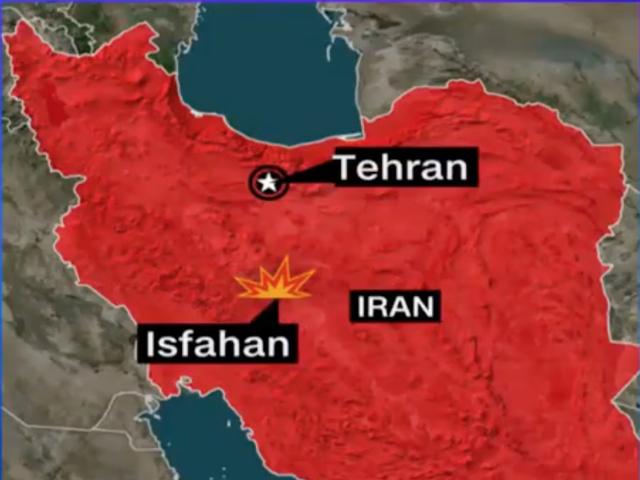After days of mounting tensions and strategic alerts, Israel has initiated an airstrike against Iran, intensifying regional unrest. The backdrop to this development is the ongoing conflict with Palestinian militants in Gaza, which has been in a state of war since early October, following a deadly attack by the Hamas militant group.
The airstrikes targeted the vicinity of Isfahan, Iran's third-largest city, known for its significant military installations. Israeli sources, as reported by the New York Times, confirmed the operation, which was also acknowledged by a U.S. official. Despite visible explosions in Isfahan, the situation was muddied by Iranian claims, as reported by Reuters, suggesting that these were the results of their air defense systems, denying any missile strikes on their soil.
Your reminder that Isfahan has important nuclear sites and highly enriched uranium and is 120 km from Natanz.
— Mark Dubowitz (@mdubowitz) April 19, 2024
Israel: Iran we can reach your nuclear sites, penetrate your air defenses, and strike where we want at will.
This aggressive move by Israel appears to be a direct retaliation for recent assaults. Over the last weekend, Iran orchestrated a severe bombardment involving drones and missiles aimed at Israeli territory, which was thwarted with the assistance of the U.S., the U.K., and France. The root of these recent exchanges traces back to an Israeli operation on April 1 that targeted the Iranian embassy in Syria, killing two high-ranking officials of Iran's Islamic Revolutionary Guard Corps—a strike Israel has not officially acknowledged.
The prospect of open conflict between Israel and Iran represents a significant escalation, prompting concerns from Western and European nations about the potential for broader regional destabilization.
BREAKING
— Sebastian Gorka DrG (@SebGorka) April 19, 2024
Israel is taking military action, as we speak, against the murderous Islamofascist regime of Iran.
May the Persian people use this weakening of the mullahs’ dictatorship to take back their nation.
This incident is intricately linked to the ongoing strife in Gaza. The tit-for-tat escalations have persisted as Israel continues its controversial strikes against Hamas, which governs Gaza and is recognized as a terrorist organization by multiple Western governments, including Australia. Since the October 7 attacks, Hamas has inflicted severe casualties and kidnappings on Israeli citizens.
Moreover, the broader regional dynamics involve Iran's support of proxy groups that conduct periodic attacks against Israeli interests, further complicating the geopolitical landscape.
Israel can easily penetrate Iran’s air defenses, thus Khamenei should worry it can strike at leadership, IRGC and nuclear assets.@mdubowitz joins @CNN to weigh in:
— FDD (@FDD) April 19, 2024
Watch 👇 pic.twitter.com/6xn0IGL62C
The U.S. plays a crucial role in this unfolding scenario, serving as a staunch ally of Israel. Despite this support, the U.S. administration under President Joe Biden finds itself navigating a complex diplomatic path, attempting to balance unwavering backing for Israel with the need to moderate the broader regional tensions—especially significant in an election year where political stakes are high.
The situation is further complicated by Iran's long-term nuclear ambitions, which add another layer of complexity and risk to the already volatile regional security environment. The global community, particularly Western powers, has expressed deep concern over the possibility of these tensions spiraling into a larger conflict, urging restraint and diplomatic engagement to prevent further escalation.


